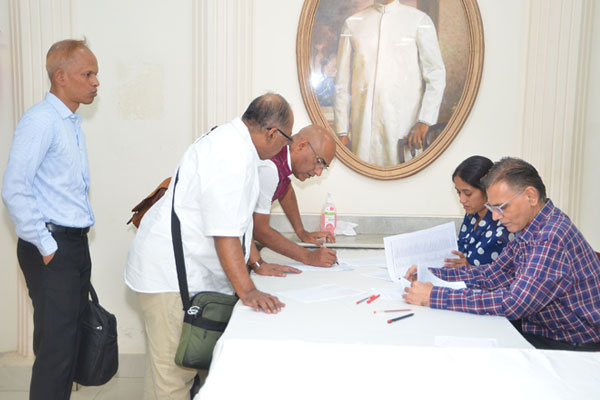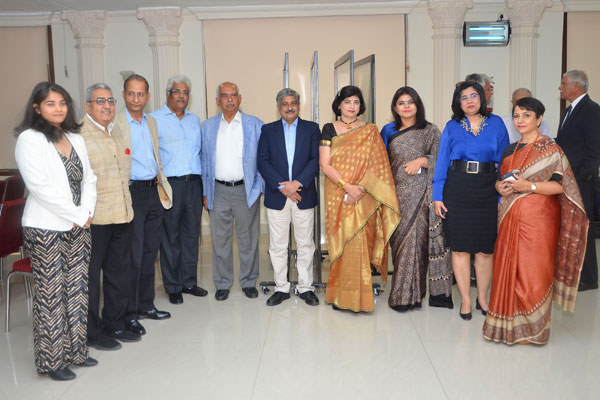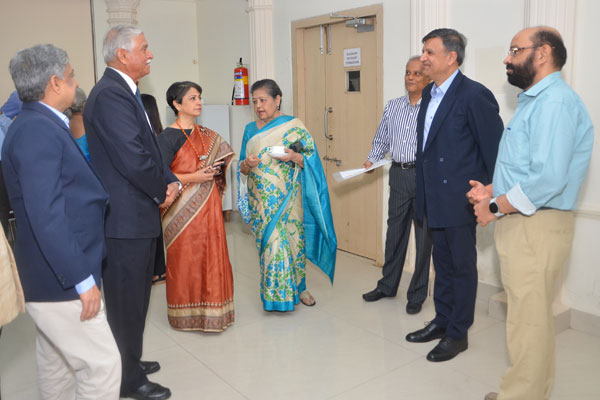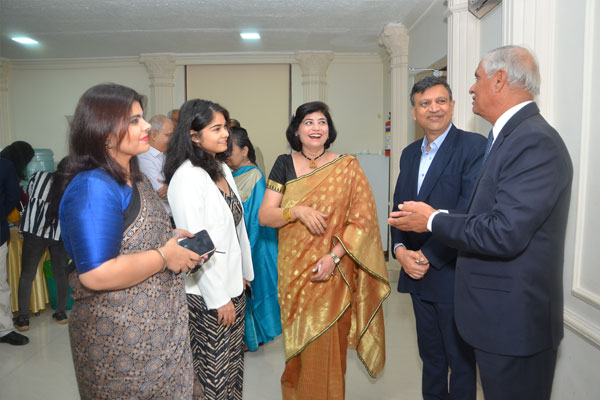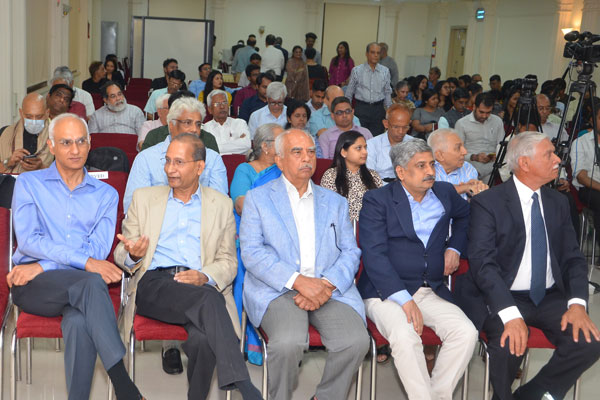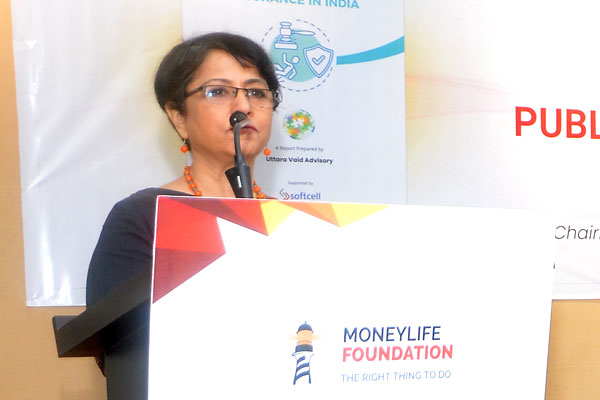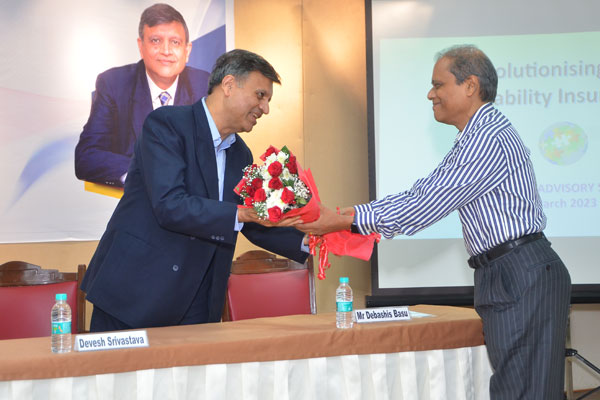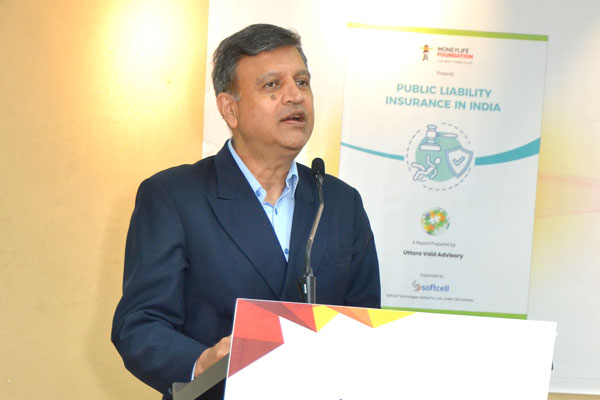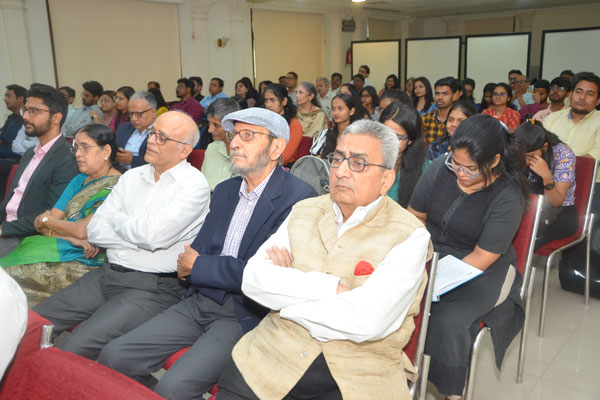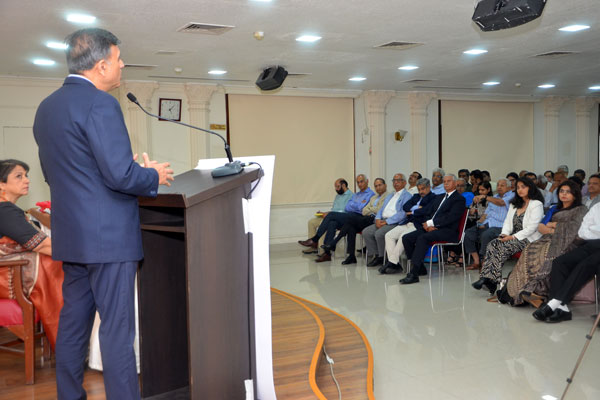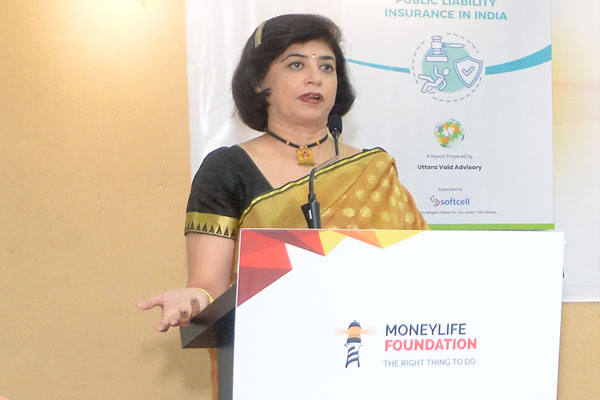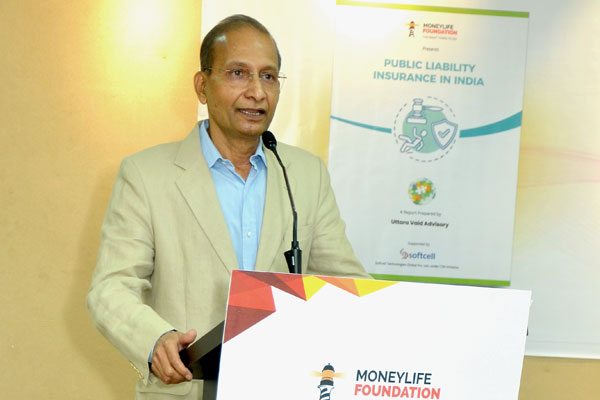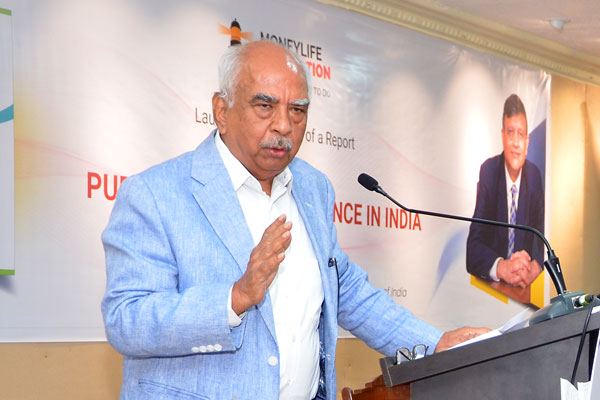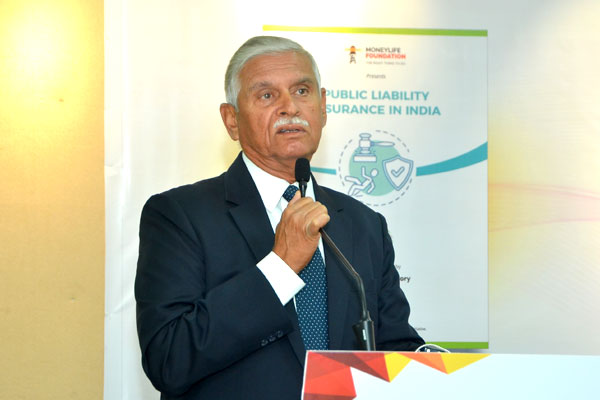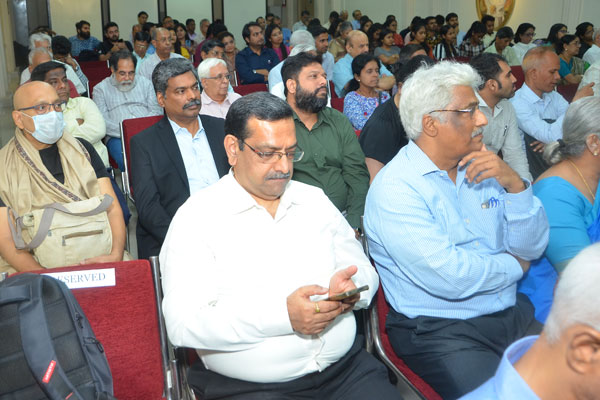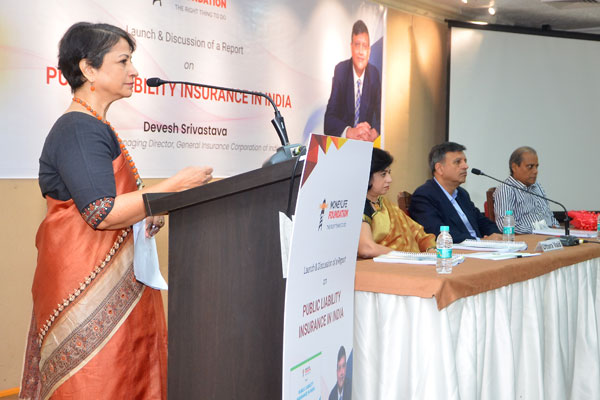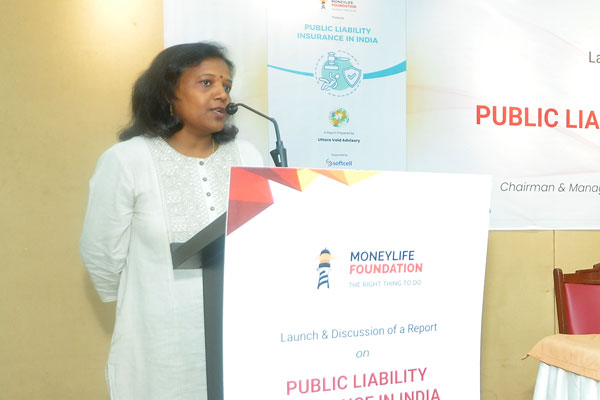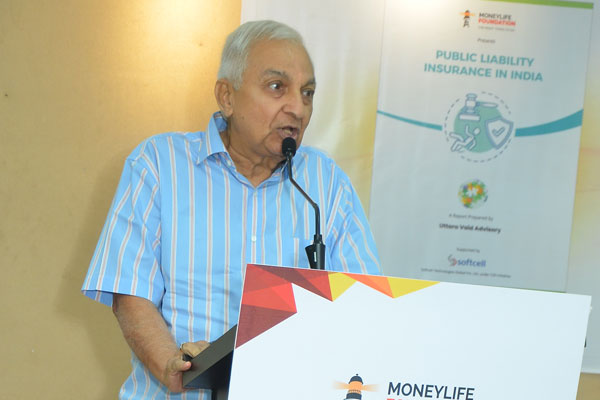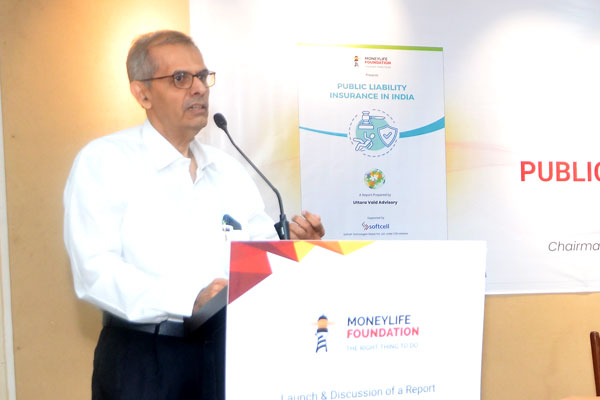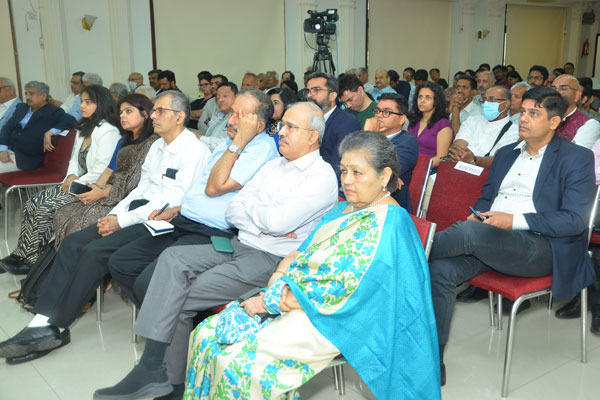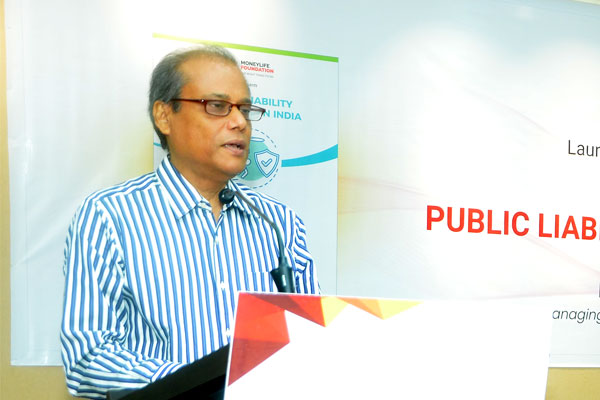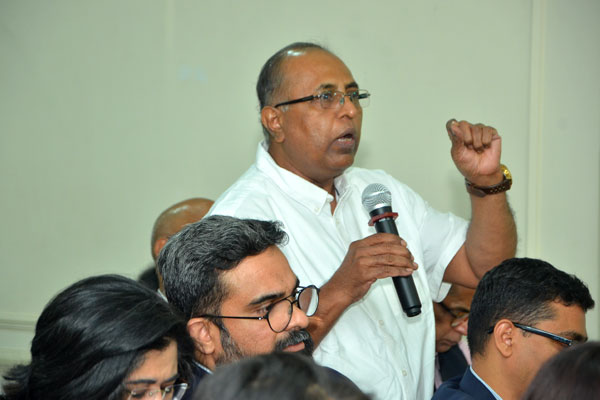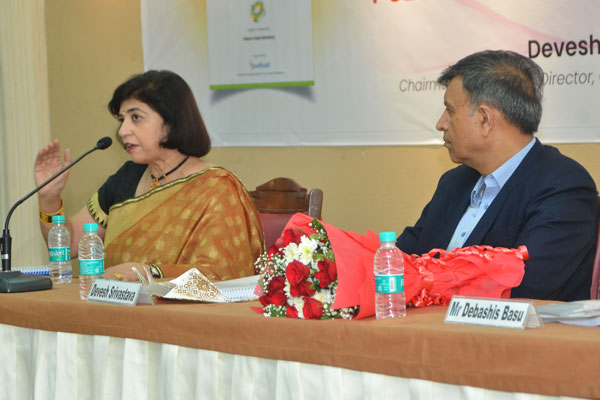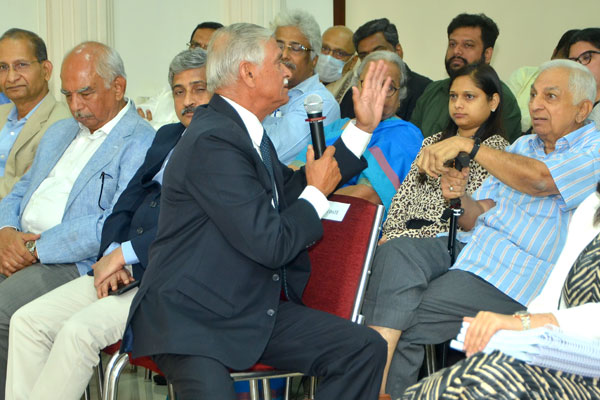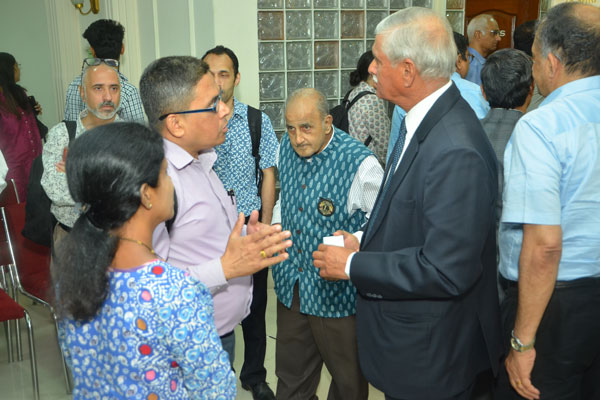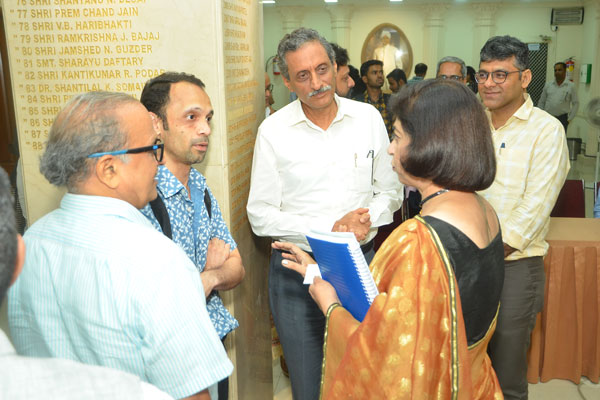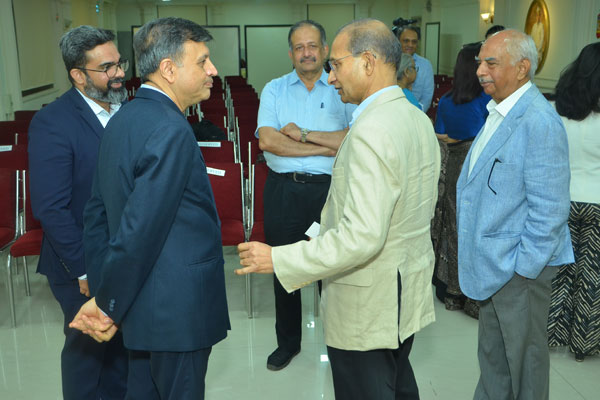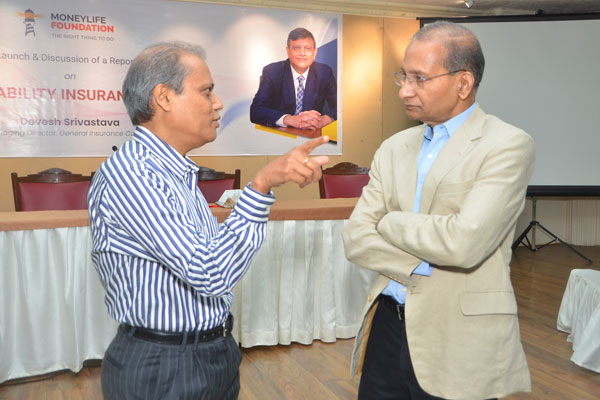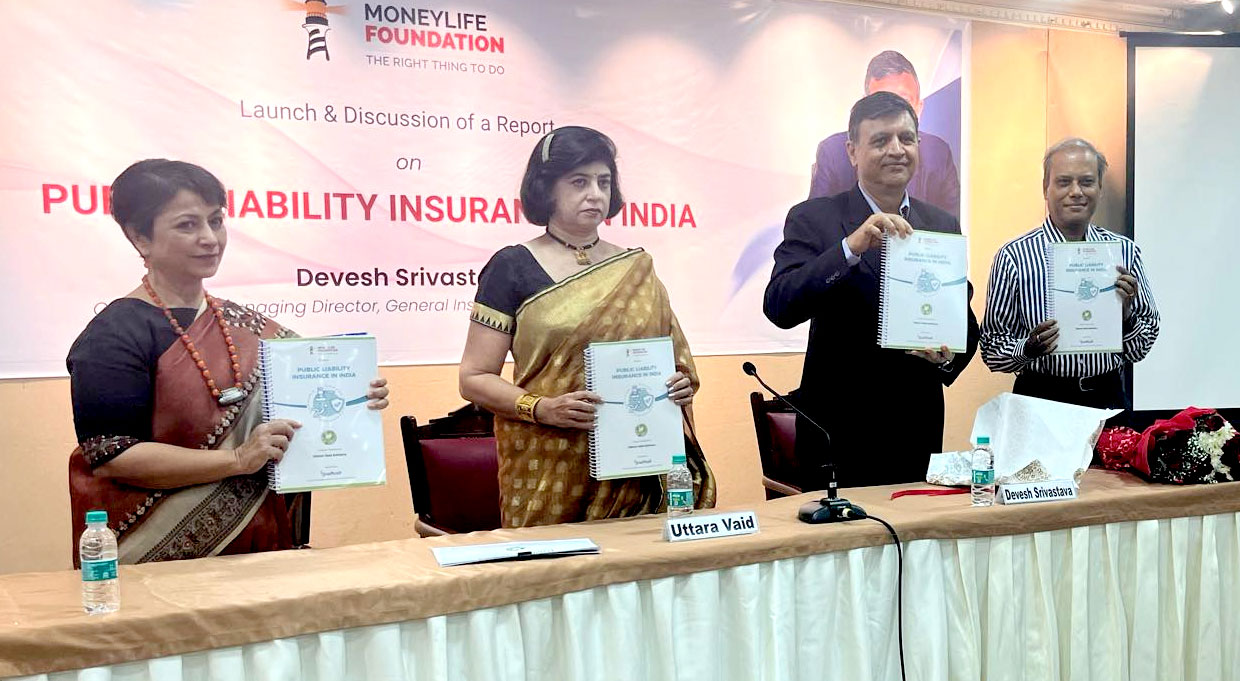
“In the US, nearly 40%-45% insurance products are liability insurance compared with just 1%-1.5% in India. We need to change this and take public liability insurance products to mass market. It will bring required change in the mindset of businesses as well as common public,” says Devesh Srivastava, chairman of General Insurance Corporation of India (GIC). He was speaking at a function organised in Mumbai to release Moneylife Foundation's 'Report on Public Liability Insurance in India'.
The 'Report on Public Liability Insurance in India' is a 360-degree perspective on the rules and regulations governing liability insurance, its functioning and operability—both for massive public tragedies like Bhopal Gas (which led to the enactment of the Public Liability Insurance Act) and the subsequent evolution of commercial liability products in line with contractual mandates of global commercial organisations.
Mr Srivastava says, "We deserve much better than what we are receiving. So let us aim for the best. We certainly can give a liability insurance product that the entire world would like to take note and copy it."
The released report has also made some key recommendations to ensure that the efficacy of liability insurance is improved and rules and regulations are implemented to protect victims' rights, such as improving upon the draft amendment of the Public Liability Insurance Act to ensure training of district collectors concerning the relevant provisions of the Act, and adding accountability and self-reporting from district collectors.
The report is a culmination of the work and efforts put in by the Moneylife Foundation to better understand liability insurance for public places after realising that such insurance was often misunderstood and underutilised in India.
In most developed countries, if you are injured in a public space such as a bank, cinema, mall or restaurant, the owner of the establishment has an insurance policy that covers it. In India, we are on our own—if you have a good enough personal accident policy and health policy, you may be covered. The public establishment has no responsibility even to call an ambulance to get you to a hospital.
Moneylife Foundation discovered this through the case of DS Ranga Rao (Perils of Visiting a Bank – When Accidents on Branch Premises Leave Customers with Huge Costs and No Compensation), when every grievance redress mechanism failed to get him justice and compensation after he was severely injured while trying to access his bank locker.
Only after Moneylife Foundation escalated it to the highest level of the Reserve Bank of India (RBI) was Mr Rao reimbursed for his surgery and hospitalisation (Moneylife Impact: SBI Finally Pays Reimbursement of Medical Expenses to Customer Who Suffered Accident inside Branch Premises).
Shrirang Samant, former regional director of Llyods of London, suggested liability insurance as a viable option for victims of such incidents. This intrigued Moneylife Foundation to explore further and after several fruitful discussions with industry stalwarts, help was sought from Uttara Vaid, a well-known expert on such insurance, to research and complete a comprehensive report.
With a brief presentation on the report's key findings, Ms Vaid says, "Public Liability Insurance will not take off until low legal awareness endemic to India is combated."
She also talked about the regulatory framework currently in place to address issues of relief and compensation to victims - the Public Liability Insurance Act (1991) and the National Green Tribunal Act (2010). However, she also pointed out that effective implementation of both acts is hampered by a lack of immediate relief and that it only applies to victims of accidents involving hazardous substances, i.e. industrial accidents.
Among other issues, she also described in detail the reasons for the low penetration of liability insurance in India and the possible solutions for creating awareness about the relief options available for victims. Since the liability insurance and regulatory framework for motor accidents is robust, her most important suggestion during the presentation was to replicate the same process and framework for liability insurance to improve effectiveness and applicability.
Speaking on the report, Mr Samant commented, "In India, nobody buys insurance product unless it is made mandatory like the motor insurance. We need to create awareness about public liability insurance. For example, if someone sues somebody responsible for safety of a public space, then it will create a much needed media coverage and thus bring awareness about liability insurance.”
Among the experts consulted for the report was KK Mishra, former chairman and managing director (CMD) of Tata AIG General Insurance. He says, "The small change that can be brought immediately is to remove the word 'hazardous' from the PLI Act. Also we need to make people aware about public liability insurance. For example, half of the vehicle owners dont know much about motor insurance but see how it is penetrated."
According to Dhananjay Date, former MD of Swiss Re, we Indian do not like confrontation especially in insurance matters.
"People do not even know that they have a right to claim (insurance or compensation). This is where public liability insurance plays a big role. At the same time IRDAI need to increase compensation amount offered under the PLI Act, considering inflation and cost of living," he says while sharing his comments on the report and the importance of its findings.
N Rangachary, former chairman of Insurance Regulatory and Development Authority of India (IRDAI), while not present at the event, has also read the report and commented that liability insurance “is a very interesting subect - worth pursuing in the background of India’s economic and industrial development. If we want to be a world player, our insurance companies must be enabled to be competitive in this business.”
He further added that, “The pricing of the product must follow actuarial principles and we should encourage general insurance companies to go in for this business. There should be no disinterest in this business for them when these are ensured.”
About the report
India is hampered by the fact that the Law of Torts has not been codified, unlike other countries. Further, judgements which define judicial thinking in this area have thus far been concentrated only on industrial accidents. So, victims of non-industrial accidents such as the Morbi bridge collapse or the Uphaar Cinema tragedy still have nowhere to go for relief.
While many measures to address this have been suggested in the report, the overwhelming view that resonated with the experts consulted was in favour of the following essential initiatives:
• Mandating public liability insurance by expanding the purview of the Act to encompass all business owners;
• Setting up a separate judicial forum for victims of non-industrial casualties so that their plea for justice and compensation can be fast-tracked. This ought to be on the lines of the motor vehicle accident tribunals which are considered highly effective by all stakeholders.
• Pave the way for a plaintiff's bar or introduce the contingency fee system for lawyers so that there is some incentive at the legal professional's end to facilitate the deliverance of justice.
From an insurance perspective, the report has suggested that non-life insurers concentrate on improving their product coverage and also on improving the claims conditions so that no hapless insured will ever be forced to withdraw his claim, because the policy would not pay or the claims conditions are too onerous to comply with.
As for the claims handling issues, the report makes an important suggestion of making the entire claims process owner independent. In fact, a suggestion has been made to replicate the motor accidents claims to handle the process suitably for public liability claims.
The report has been possible due to the support of Softcell Technologies Global Pvt Ltd, under a corporate social responsibility (CSR) initiative. A copy of the report has been made available on Moneylife Foundation's website here: https://www.mlfoundation.in/memorandum/public-liability-insurance-in-india/182.html


